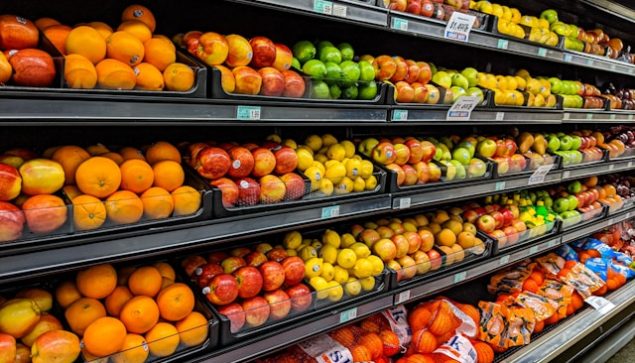This week, the Government of Canada’s released its budget for the upcoming year. This budget was generally met with disappointment by civil society organizations in the food movement who are working for just, healthy and sustainable food systems. While there are many positive commitments towards a clean energy transition and a national dental plan, in other areas there is little long-term vision and few concrete steps forward towards health, justice, and sustainability in the food system and beyond.
Grocery rebate of $2.5B a temporary solution
The budget acknowledged that food insecurity is strongly correlated with income inequality, yet offers few tools to address this gap. The $2.5b “Grocery Rebate” is a welcome intervention that targets low-income households through the GST credit program, however its title is misleading. Indeed, it is a general top-up to the GST credit rather than a direct rebate or discount on grocery purchases.
This rebate will provide financial support to approximately 11 million low- to modest-income individuals, by providing couples with two children with up to $467, single individuals without children up to $234 and seniors $225 on average. However, according to the Canadian Revenue Agency (CRA), up to 12 % of the population do not file their income taxes, which would prevent this most vulnerable group from receiving the rebate. To address this issue, the 2023 budget includes a pilot project to create an automatic tax-filing service to ensure those eligible for the rebate receive it automatically. Nonetheless, the “Grocery Rebate” is a one-time band-aid intervention that does not tackle the underlying issues of poverty and inequality, the main causes of food insecurity in Canada. It is worth noting that there is a current parliamentary study on food price inflation.
Absence of school food
FSC, along with hundreds of other organizations in Canada, was very disappointed to see no mention of school food. In a budget of billions of dollars, wise social policy would have included the Liberal election platform’s $1 billion commitment over five years to advance a national school food program. An investment in school food programs would have meant that more children and youth, from coast to coast to coast, would be able to enjoy a healthy breakfast, lunch and/or snack at school, which would benefit their health and capacity to learn. Such an investment would also have reduced pressures on families’ budgets.
Instead, Canada remains one of the only members of the Organization for Economic Cooperation and Development (OECD) without a national school food program in 2023, despite its numerous benefits. Despite the absence of the $1b over five years commitment this year, the Coalition for Healthy School Food and Food Secure Canada will continue to hold the government accountable for their commitment in 2024 while doubling their efforts to influence the emerging National School Food Policy.
Progress of Bill C-22 for a Canada Disability Benefit
One encouraging development in the budget is the progress of Bill C-22 through the Senate to establish a Canada Disability Benefit, and there are commitments in Budget 2023 to prepare for its eventual adoption. However, if we are to truly achieve zero hunger in Canada, the government ought to apply a universal approach to income support. Currently, the piecemeal approach, where different groups receive different levels of support, continues to leave many working-age adults and others food insecure.
Small commitments to strengthen Canada’s agricultural sector
There were some small commitments made to strengthen Canada’s agricultural sector, such as an increase to the interest-free loan maximum for farmers and a program to reduce dependence on nitrogen fertilizers, as well as funding for dairy farmers to support the research and development of new products based on solids non-fat (SNF). However, a concerted plan to build a more sustainable food system with a smaller carbon footprint remains absent.
Limited measures to address racial inequality and reconciliation
There is a clear recognition of the racial inequities that exist in areas of food security and elsewhere. To address this, there is additional funding for Canada’s Anti-Racism Strategy and the Supporting Black Canadian Communities Initiative. Nonetheless, despite language that affirms the importance of reconciliation, there are few clear steps to this end. Since 2015 the government has made great progress on lifting water advisories in First Nations communities, but more needs to be done to close the significant infrastructure gap that exists between southern and northern Canada.
Final thoughts
Food Secure Canada is disappointed there is not more focus on addressing food insecurity, unsustainable food systems, the need for a universal healthy school food program, the lack of food sovereignty, and the systemic inequities that exacerbate these issues. Alongside many others in the food movement, FSC continues to advocate to the federal government for policies that support healthy, sustainable and just foods, and get Canada on track to achieve the Sustainable Development Goals by 2030.
See what other organizations are saying about the 2023 Federal Budget below (to be updated as more become available):

